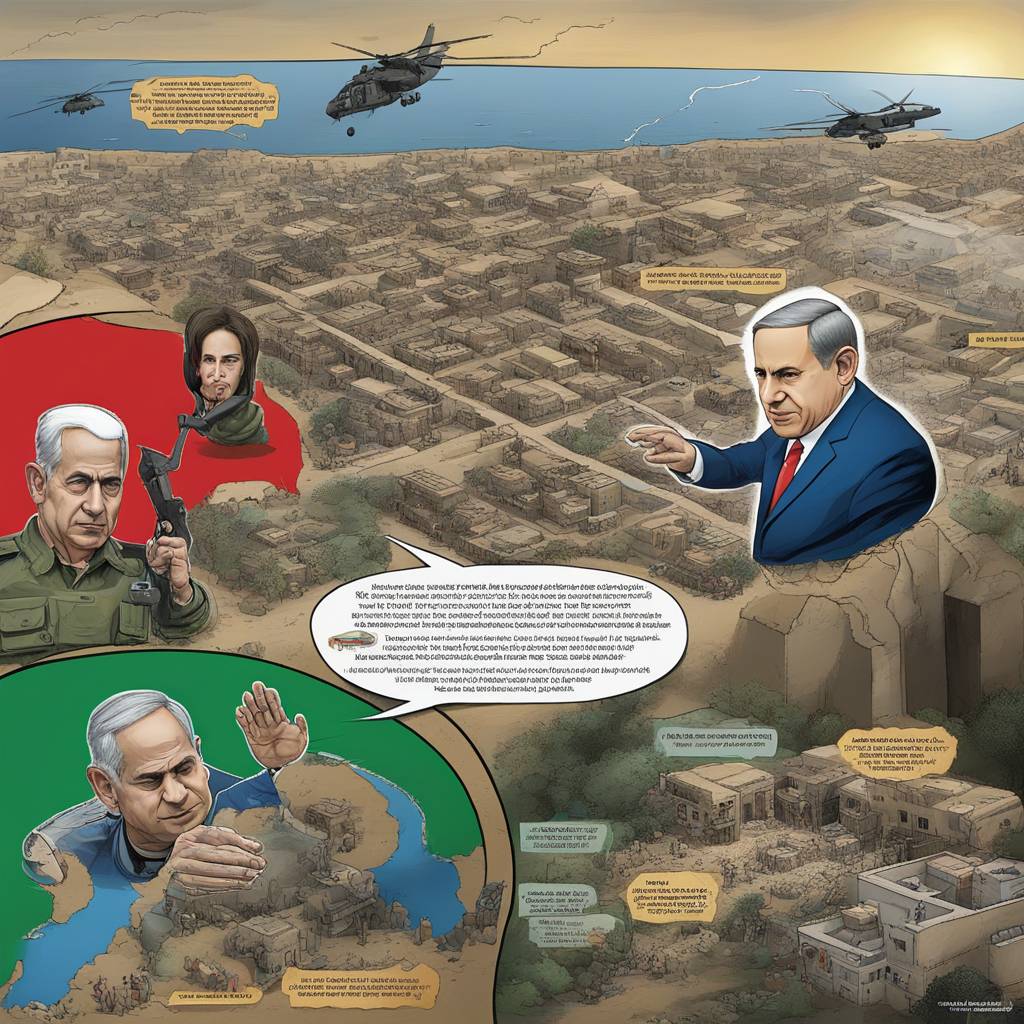U.S. Secretary of State Antony Blinken failed to convince Israel’s Prime Minister Benjamin Netanyahu to call off a planned ground invasion of the Gaza city of Rafah during his recent visit to the Middle East. Netanyahu stated that Israel was prepared to take action in Rafah alone if necessary, despite American appeals. The Biden administration continues to provide military aid and diplomatic support to Israel, even as the conflict with Hamas in Gaza has led to a worsening humanitarian crisis.
Israel views Rafah as the last stronghold of Hamas and believes that defeating the militant group there is essential to meeting its objectives. However, the presence of over 1 million displaced Palestinians in Rafah poses a challenge, as the international community fears that a ground invasion could harm civilians and hinder humanitarian aid efforts. Netanyahu expressed Israel’s commitment to evacuating civilians from combat zones and addressing the humanitarian crisis but emphasized the necessity of entering Rafah to defeat Hamas.
Despite sharing Israel’s goal of defeating Hamas, Blinken and the U.S. administration maintain that a major ground operation in Rafah is not the best approach. They warn that such an operation could lead to further civilian casualties, impede the delivery of aid, and isolate Israel globally. Efforts to forge a cease-fire deal between Israel and Hamas are ongoing, but tensions in Rafah are rising, with the looming threat of a ground invasion casting a shadow over the negotiations.
International mediators, including the U.S., Qatar, and Egypt, have been working to broker a cease-fire in Gaza. Israel seeks the release of over 100 hostages held by Hamas, while Hamas calls for an end to the conflict and the withdrawal of Israeli forces from Gaza. The U.S. is also pushing for increased humanitarian aid to Gaza, where malnutrition rates have risen drastically since the conflict began. Israel denies placing restrictions on aid deliveries but international organizations report difficulties in reaching those in need due to hostilities and logistical challenges.
A U.S.-sponsored United Nations resolution calling for an immediate and sustained cease-fire in the Israel-Hamas conflict was vetoed by Russia and China, with other countries abstaining or voting against the measure. The Security Council’s failure to pass the resolution was met with disappointment by Blinken, who described it as a cynical veto that could have helped bring an end to the fighting, secure the release of hostages, and condemn Hamas. The U.S. continues to work towards a peaceful resolution to the conflict but acknowledges that there is still much work to be done.


